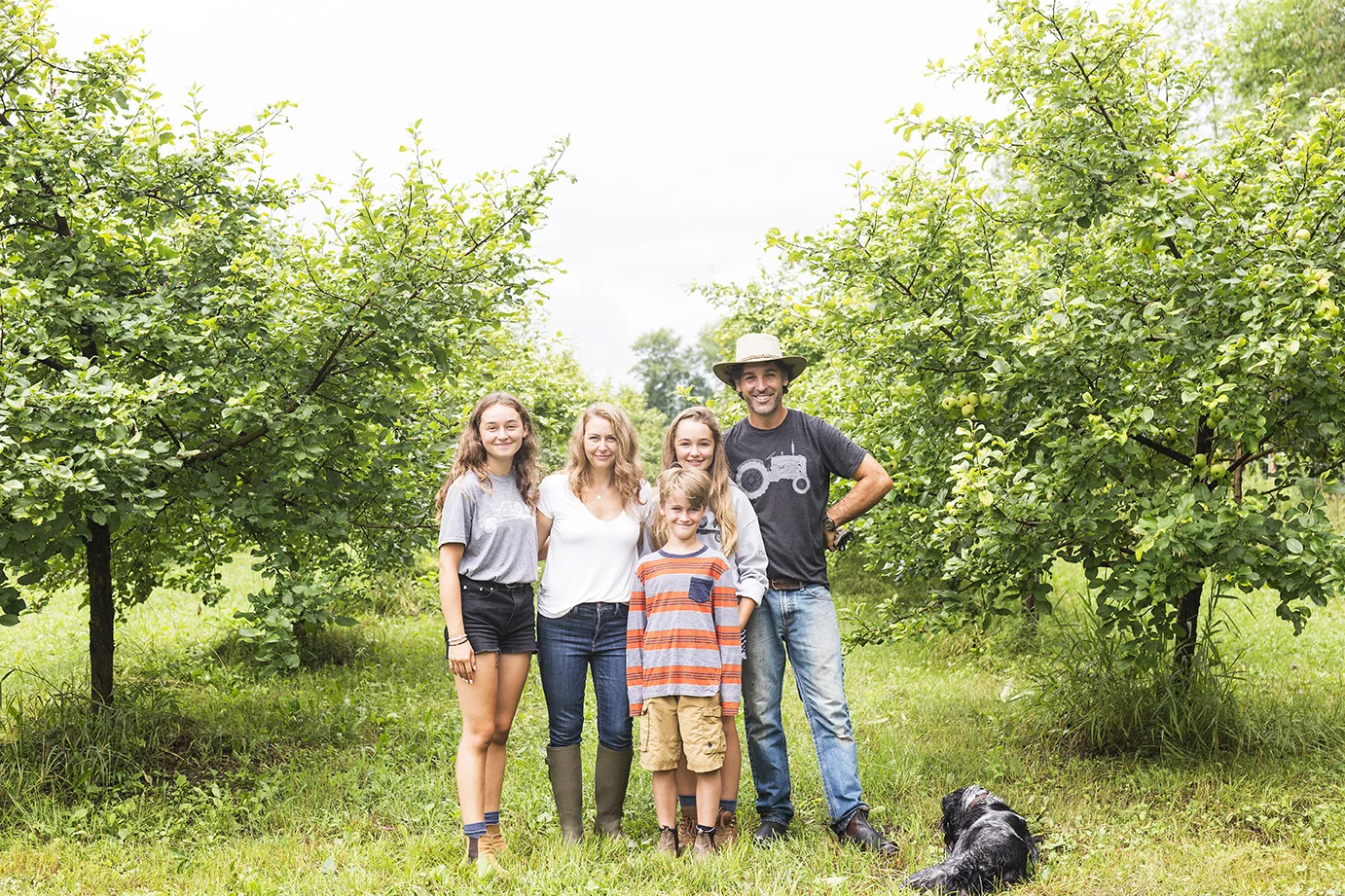Le Verger de Hudson, 839 Rue Main, Hudson
I’d like to start off by underlining the fact that when my husband Eric and I decided to plant an organic apple orchard I was in my mid twenties, so in general, there were a lot of things that I didn’t know. But what I have learned in the last 15 years, and continue to learn every day about agriculture and the way conventional, mass market food is grown blows my mind.
We began our adventure in 2003, my eldest daughter was born in February and on May 1st we planted 1000 semi dwarf apple trees on a plot of land that we purchased in our home town of Hudson. It was a stroke of luck and persistence to fall upon 53 acres of prime farm land that we could afford. We knew that we wanted to take the organic route with the orchard. Apples being one of the most chemically sprayed fruit on the market, there was obviously a demand for the organic version and we were eventually going to live there and raise our family; it made sense not to poison ourselves.
Our first introduction to government regulations concerning the use of pesticides and insecticides came around the 5th year of the orchard. The trees were beginning to produce a small harvest but the apples were prey to numerous insects and scab (the dark spots on the skin of the fruit). We decided that it was time to intervene and treat the apple trees so we could harvest in the fall. All farmers need a permit to purchase insecticides and pesticides, be they chemical or certified organic. The permit is acquired through a provincial online course that ends with a final exam, regulated by federal law. Both levels of government are involved with the programme. The permit aims at teaching farmers the proper ways of handling and storing pesticides and insecticides, as well as interpreting the labels as per field re-entry and harvest. (Re-entry meaning how much wait time is needed before a human being can enter a field after it was sprayed and the wait time in which fruits, vegetables and grains can be harvested and consumed after a spray.)
I have to admit that I was a little shocked. I hadn’t realized that one individual has the responsibility to properly apply chemicals as per manufacturers directions on crops that we all consume. What was even more disturbing was a video of testimonies by farmers who had handled chemical pesticides and insecticides throughout their careers and who now were suffering from Alzheimer’s or Parkinson’s disease.
Basically, the incentive to properly handle these chemicals was to not end up with a debilitating disease? I couldn’t believe it. It wasn’t sugar coated, these chemicals where extremely harmful to human health and yet widely used every single day on fruit and vegetables and grains.
Anick gathering apples
The permit episode was an eye opener. The more we delved into the world of organic agriculture, the more I learned about all of the crazy practices of conventional mass agriculture. Every obstacle to an optimum harvest is teamed up with a chemical action.
For example grass and weed control: that’s easy, Roundup. Uneven harvests (fruits trees are biannual, they will yield big one year and rest the following year): chemical thinning with Carbaryl. Falling fruit (mostly due to premature ripening in warm weather): growth regulators such as Apogee slow ripening. You name the “ problem” and there has been a chemical solution developed.
We are now at our 15th season with the orchard and in the spring the orchard was hit with a bad case of fire blight, a bacteria that spread throughout , killing the trees branch by branch. We uprooted and burned 200 apple trees and cut off more than 25% of producing branches. It was terrifying and extremely sad. If we were a conventional orchard, we would have sprayed an antibiotic systematically in the spring to avoid the bacteria all together and you would have in turn, ingested that antibiotic through an apple.
Needless to say, our food habits have changed dramatically over the years and consuming organic foods has become a priority. I obviously still don’t know everything about agriculture and food production but I do know that eating organic and local removes a lot of the guesswork and is the best of keeping it simple!
- Anick Joanisse



